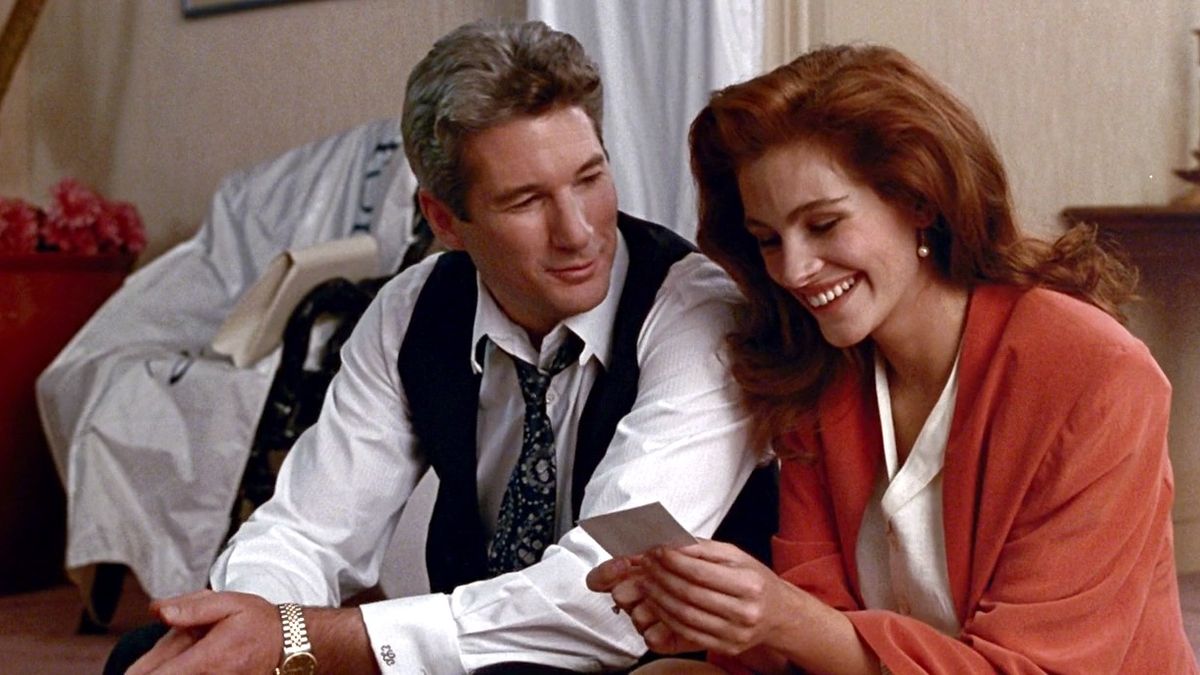"Pretty Woman" (1990): A Modern Cinderella Tale That Captivated the World
Pretty Woman, directed by Garry Marshall and released in 1990, remains one of the most iconic romantic comedies in Hollywood history. Starring Julia Roberts and Richard Gere, the film became a massive box office hit and turned Roberts into an international star. Beyond its commercial success, Pretty Woman has left a lasting impact on pop culture and the romantic comedy genre.
Plot Summary
The film tells the story of Vivian Ward (Julia Roberts), a spirited Hollywood prostitute who is hired by Edward Lewis (Richard Gere), a wealthy corporate raider, to be his escort for several business and social functions. Edward is in town for a week on business, and after a chance encounter with Vivian, he decides to pay her $3,000 to stay with him for the duration of his trip.
As Vivian is introduced to the luxurious world of Beverly Hills, her natural charm, wit, and authenticity begin to break through Edward’s emotionally distant demeanor. Over time, what began as a business transaction evolves into a genuine romance. The film explores themes of love, self-worth, and transformation, ultimately offering a modern twist on the classic Cinderella story.

Cast and Performances
-
Julia Roberts delivers a career-defining performance as Vivian. Her portrayal is both heartfelt and humorous, and she brings depth and vulnerability to a role that could have easily been reduced to a stereotype. Her radiant smile and magnetic presence earned her a Golden Globe and an Academy Award nomination for Best Actress.
-
Richard Gere plays Edward Lewis, the suave but emotionally closed-off businessman. Gere’s subtle and restrained performance complements Roberts’ vibrant energy, and their on-screen chemistry is a key factor in the film’s enduring appeal.
-
The supporting cast includes Jason Alexander as Edward's ruthless lawyer, and Laura San Giacomo as Kit, Vivian's best friend and fellow sex worker. Both provide memorable performances that enhance the film’s depth and humor.
Direction and Style
Garry Marshall’s direction strikes a balance between fantasy and reality. He transforms the potentially gritty subject matter into a feel-good romantic fairytale. The film's pacing, comedic timing, and emotional beats are handled with a light but effective touch, making it accessible to a wide audience.
The movie’s elegant visuals—shot in various Los Angeles locations including the Beverly Wilshire Hotel—combined with a memorable soundtrack (featuring Roy Orbison's "Oh, Pretty Woman") help create a glamorous yet emotional atmosphere.

Cultural Impact and Legacy
Upon its release, Pretty Woman became a global phenomenon, grossing over $463 million worldwide. It redefined the romantic comedy genre for the 1990s and is credited with reviving interest in feel-good love stories in Hollywood.
The film also sparked discussions about class differences, gender roles, and the glamorization of prostitution. While some critics have raised concerns about its romanticized portrayal of sex work, others praise it for giving a voice and dignity to a marginalized character, especially through Julia Roberts’ performance.
Today, Pretty Woman is often cited among the greatest romantic comedies of all time. It inspired a stage musical adaptation that premiered on Broadway in 2018 and continues to be referenced in popular culture through parodies, tributes, and fashion.

Conclusion
More than three decades after its release, Pretty Woman remains a beloved film that continues to resonate with audiences. With its charming leads, fairy-tale narrative, and themes of love and redemption, it exemplifies the timeless appeal of romantic storytelling. It is not just a love story between two people from different worlds—it’s also a tale about personal growth, acceptance, and finding beauty in unexpected places.

-1754991378-q80.webp)
-1755851958-q80.webp)
-1752726578-q80.webp)
